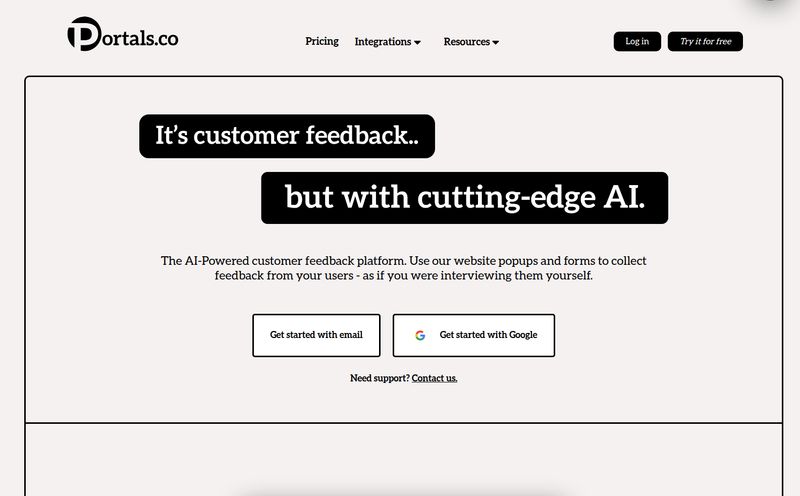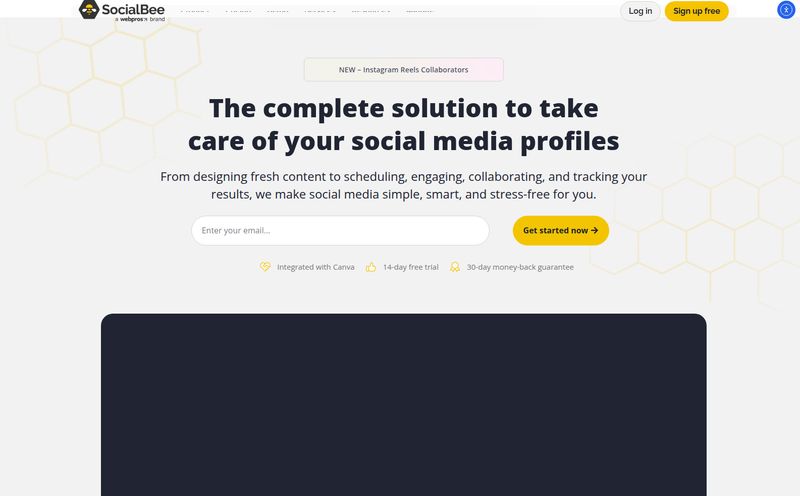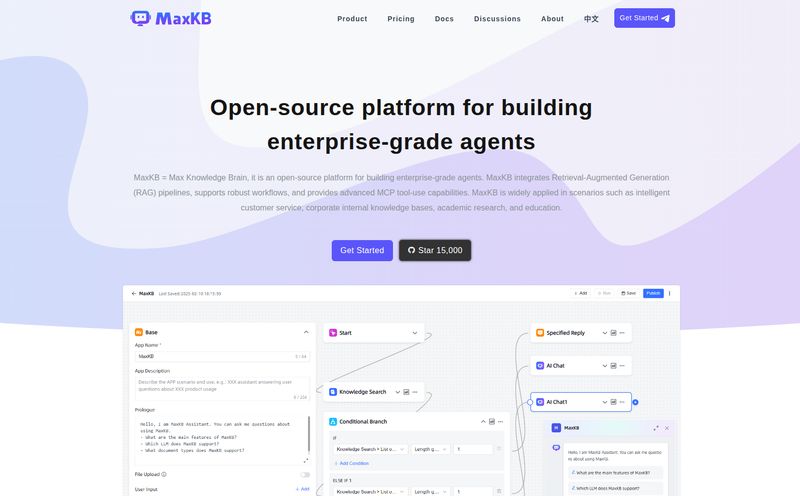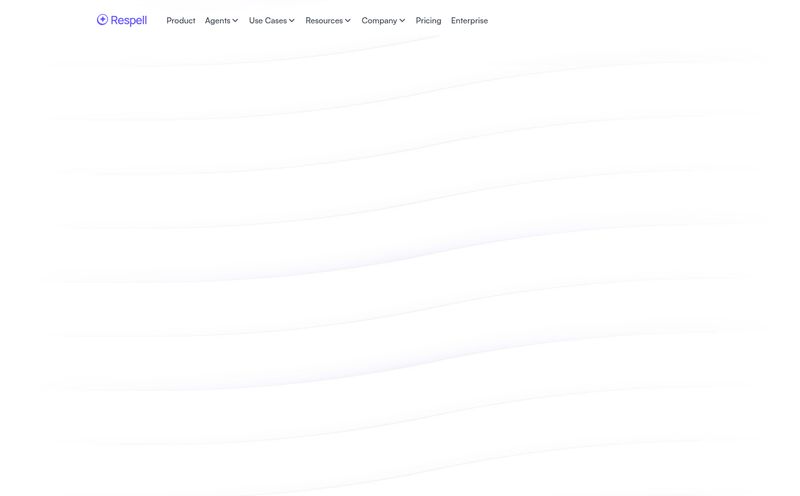You have a bookmark folder called “Read Later.” I have one. We all do. And it’s become less of a library and more of a digital graveyard where good intentions and interesting articles go to die. I can’t count the number of times I’ve thought, “Oh, I’ll save this for later!” only to completely forget what it was called or why I even saved it. My browser’s bookmark manager is a chaotic mess, a junk drawer of URLs with no context.
Every so often, a tool comes along that makes me sit up a little straighter. Not because it promises to revolutionize my entire workflow (we’ve all heard that a thousand times), but because it offers a simple, elegant solution to a problem I didn't realize was so annoying. Today, that tool is Pinbot.
It claims to be an AI-powered, private bookmark manager. Sounds fancy, right? But what got my attention wasn’t the “AI” buzzword, it was the word “private.” In a world where every free tool seems to be harvesting our data for breakfast, that’s a bold statement. So, I took it for a spin.

Visit Pinbot
So What in the World is Pinbot?
At its core, Pinbot is a Chrome extension that helps you save and find your bookmarks. Okay, nothing new there. But the magic is in how it does it. Instead of just saving a URL and a title, it uses a bit of AI to automatically generate a summary and suggest relevant tags. That's pretty neat.
But the real kicker is the search. You see, traditional bookmark search (and even Google history search) relies on you remembering the exact keywords. You have to know the title or the specific phrase you’re looking for. Pinbot works differently. It uses what’s called semantic search, which is a fancy way of saying it understands the meaning behind your words, not just the words themselves.
The AI Magic That Actually Finds Things
This semantic search thing is the star of the show. Think of it like this: your regular bookmark search is like a strict, old-school librarian who will only help you if you have the exact Dewey Decimal number. If you're off by a digit, you're out of luck. Pinbot, on the other hand, is like that cool, friendly librarian you can just describe the book to. You can say, “Hey, I’m looking for that book about the guy who gets stuck on Mars,” and they’ll know you mean The Martian.
That’s what Pinbot does for your web history. I tested this by trying to find an article I saved a few weeks ago about Google’s Helpful Content Update. I couldn't remember the title, but I remembered the gist of it. So I typed into Pinbot: “that article about google rewarding good content”. And boom, there it was. I didn’t use the words “helpful,” “content,” or “update,” but the AI understood my intent. For a content guy like me who’s constantly digging up sources, thats a huge time-saver.
Why “Private-by-Default” is a Huge Freaking Deal
Alright, let me get on my little soapbox for a minute. We’ve become way too comfortable with trading our privacy for convenience. Most bookmarking tools like Pocket or Evernote are fantastic, but they work by storing your data on their servers. Your reading lists, your saved articles, your interests—it’s all in their cloud.
Pinbot flips that script completely. All your data stays on your device. It never leaves your computer. This means it works offline, but more importantly, it means your digital paper trail is yours and yours alone. No company is analyzing your saved links to sell you ads or build a profile on you. In an era of constant data breaches and privacy scandals, this local-first approach is incredibly refreshing. Its a breath of fresh air, honestly.
“Your data never leaves your device, ensuring privacy.” - That’s a direct quote from their stuff, and in my opinion, it’s their single most important feature.
My Honest Take After Using Pinbot
No tool is perfect, of course. After playing around with Pinbot for a while, I’ve got a good feel for where it shines and where it stumbles.
What I Genuinely Liked
The privacy-first model is, without a doubt, the biggest win for me. It’s a set-it-and-forget-it kind of peace of mind. The AI-powered search is also genuinely impressive and feels like a small glimpse into the future of personal knowledge management. And the one-click save with AI summaries is just plain convenient. It's not just a link; it's a link with context, which makes future-me much happier.
Where It Could Be Better
My main gripe is that it’s currently limited to being a Chrome extension. I, like many people, live in a multi-browser world. I use Chrome for work, but Safari for personal stuff. I’d love to see a Firefox or Safari version down the line to make it a truly universal solution for me. Also, the tool’s effectiveness hinges on the AI’s accuracy. For the most part, it’s great, but occasionally it whiffs on a summary or suggests a weird tag. It's technology, not sorcery, so a little bit of manual cleanup is sometimes needed.
The All-Important Question: Pinbot Pricing
So, how much does this futuristic librarian for your brain cost? Well, this is where it gets interesting. As of this writing, Pinbot appears to be completely free. I couldn’t find a pricing page, which usually means one of two things: the tool is in an early beta stage, or the developers plan to introduce premium features later on. My advice? Grab it now while it’s free. It’s a powerful tool to have in your back pocket, and getting in on the ground floor is never a bad idea.
Who Should Drop Everything and Try Pinbot?
I can see a few groups of people falling in love with this tool. Researchers, students, and writers will adore the semantic search for digging up sources and references. Content creators and SEOs like myself will find it invaluable for organizing research and competitor analysis. And frankly, anyone who values their digital privacy and is tired of their own digital clutter should give it a shot. If your “Read Later” folder is overflowing, Pinbot might just be the intervention you need.
Frequently Asked Questions about Pinbot
Is Pinbot safe to use?
Yes. One of Pinbot's main features is its focus on privacy. All of your data, including your bookmarks and search history within the tool, is stored locally on your own device. It does not get sent to any external servers.
Is Pinbot free?
Currently, Pinbot is available as a free Chrome extension. There is no pricing information available, which suggests it may be in an introductory or beta phase.
How is Pinbot different from Pocket?
The biggest difference is privacy. Pocket is a cloud-based service that stores your articles on its servers. Pinbot is a local-first tool, meaning your data stays on your machine. Pinbot also focuses more on AI-powered search of your history, whereas Pocket is more about a clean reading experience for saved articles.
Does Pinbot work on Firefox or mobile phones?
As of now, Pinbot is only available as a browser extension for Google Chrome. There is no official support for other browsers like Firefox, Safari, or mobile operating systems yet.
A Promising Start for a Common Problem
Look, bookmarking isn’t the sexiest topic in tech. But it’s a universal pain point. We’re all information hoarders to some degree. Pinbot isn’t trying to reinvent the wheel; it’s just making the wheel smarter and more respectful of your privacy. It’s a simple, focused tool that does what it says on the tin.
It’s not perfect, but it’s a genuinely exciting step in the right direction for personal knowledge management. For anyone drowning in a sea of open tabs and forgotten links, Pinbot is a worthy lifeboat. Give it a try—your future self might thank you for it.
Reference and Sources
For more information or to download the extension, you can visit the official source. As I find more resources, I'll be sure to update this section.
- Pinbot's Official Website (Note: A specific URL was not provided, but would be linked here)
- Electronic Frontier Foundation - For further reading on why default privacy matters.



